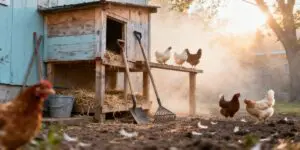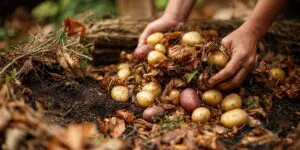After everything that happened starting with 2020, more and more individuals are looking at or considering to homestead.
However, it is not a step to be taken lightly, and you must consider several factors before purchasing your homestead property.
Below are a few factors to keep in mind when considering the purchase of a piece of property for homesteading, that will elevate any possible problems or headaches down the road.
Amount Of Land Needed
When you begin your property search, try to have a general idea of what you plan to do with your homestead and anticipate the amount of land you will need to do it on. Look ahead to avoid a significant problem when it comes to land.
It would be best if you chose to overbuy and purchase more land than you feel you will need from the start, rather than get neck-deep into building your homestead, only to find out that you do not have the land needed to put all of your plans and systems into place.
Once you have your homestead up and running how you want it, and find that you have more land left than you want to maintain or pay the taxes for, you will always have the option of selling portions of it.
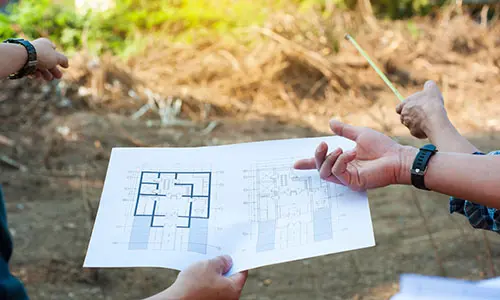
Ease Of Access To The Property
When looking to buy property for homesteading, you will need to take a look at and consider the ease of access to the land. There is more involved than looking at a piece of land and thinking, “well, we will need to put in a road.”
First, there are legalities involving any neighbors you may have if you share access with your neighbors. You will need to determine who is responsible for maintaining and caring for the road, such as filling potholes or plowing snow in the winter.
Is the access road on level land, or is a hill involved? Does the road go over or through a creek, which could make it prone to seasonal flooding? These are all vital questions to ask yourself when accessing any potential homesteading property.
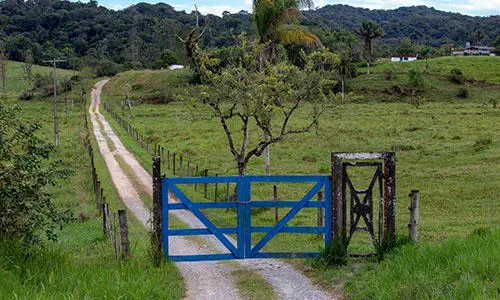
A Reliable Source Of Water
Water is one of the, if not the most, crucial elements of all living beings. For this reason, it is imperative to know before purchasing any property for homesteading that you know where your water will be sourced from.
It may be sourced from a property well or a nearby spring. You may need a meter set to receive your water from your municipal water company. Keep in mind that if you are planning to use a nearby natural spring, you will need to know if you have legal rights to or access the spring.
When considering a well, contact a drilling company and determine what depth the well needs to be dug before hitting the water. Just because your neighbor hit the water at a specific depth doesn’t mean that you will as well. In most cases, a well needs to be dug deep, before even beginning to see any signs of water present.
Related: How You Can Find Out If Your Homestead Water Is Polluted Or Clean
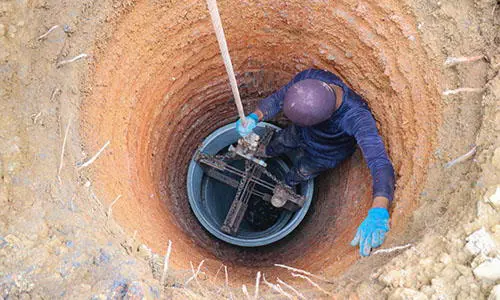
Access To Power
Power, along with water, are the two most vital areas to take into consideration when determining the possible location of starting your homestead.
Do your due diligence and contact your local power company to determine if power is accessible on the property. Although you could always choose to go off-grid from the beginning, most new homesteaders would rather have the comforts of modern society instead.
Choosing the location of your residence will play a role in your power access. Will you be near the main lines? Will you be a significant distance away, requiring the running of new poles and access points?
These should all be considered, as running power over a considerable distance can quickly become quite costly. Considering all of these factors, you will not feel caught off guard or deflated when you see the final tally.
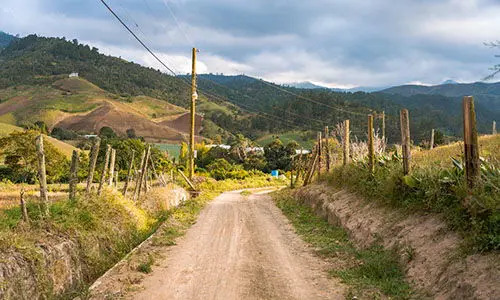
Soil Composition
If you plan to garden on your homestead, consider the soil’s composition. Although it is true you can always amend the ground in any possible garden space, if you are planning to plant anything for the feeding of livestock, you will want to know that it will be an effortless endeavor.
In a nutshell, considering soil composition when purchasing the land will fall solely on what you intend to use your homestead for.
For example, if you want to fence off a section for livestock, such as cows or horses, then the soil composition will only play a small role in your decision. However, if you want to grow your own hay or alfalfa for your livestock, you will want the soil to accommodate your plans.
Related: How to Adjust the pH in Soil and Water for Abundant Harvests

Climate
Much like the soil composition, the overall climate of the area where you are purchasing your property to homestead can play a significant role. It is essential to understand that there is no perfect climate when it comes to considering a location for a homestead.
Where one may be too dry, the other may be too wet. One area may be too hot, while the other may have too many cold months out of the year.
Every location will have its pros, cons, joys, and hardships. That is just the way of homesteading as a whole – you must learn how to work with what you have as well as what is thrown at you the best you can.
Essential is to research the climate and year-round weather for the area you are considering so that you will be aware during any specific season. By not knowing what you are going into, you will only make a stressful situation all that much more so.
I hope the information and tips presented above will help you search for your dream piece of homesteading property.
There is no better feeling you can have than to be able to sustain yourself and your family while working the land you own and live on.
You may also like:
 My Advice For All Homesteaders Out There
My Advice For All Homesteaders Out There
Do you know why you should never put a tall fence around your house? (Video)
My Day As A Homesteader During Winter
Avoid These 8 Looter-Inviting Things On Your Property












